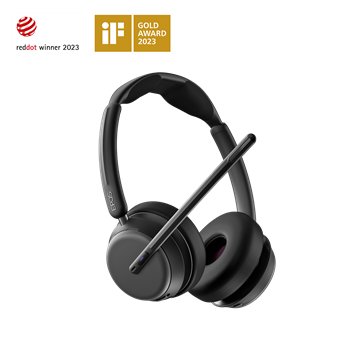
IMPACT 1000 Series
On-ear Bluetooth® headset with adaptive ANC and industry-leading voice pickup
At EPOS, we empower businesses around the world to better communicate and collaborate - anytime, anywhere and on any device. We use the most advanced audio and collaboration technologies to create solutions that are powerful, reliable, and easy to use.
EPOS headsets deliver crystal-clear sound and superior noise-cancellation, allowing for uninterrupted communication and enhanced productivity. With a variety of wired, wireless and DECT solutions, our headsets cater to all business needs. From noisy open offices to important calls on-the-go, EPOS has got you covered.
Use our Product Finder to find what suits you

On-ear Bluetooth® headset with adaptive ANC and industry-leading voice pickup
Stay in control of all your devices across locations. EPOS complementary Digital Solutions offers different tools to make the management of devices time and cost efficient.
What you’ll consider the best office headset ultimately depends on your exact requirements. That’s because workplaces are very different when it comes to how often headsets are used, how noisy they are, the amount of hybrid work, and many other factors.
This article guides you to choose the right headset for your needs based on several key-factors.
Do you want to know more about our products or what EPOS offers? Fill out the form below and we will be in touch